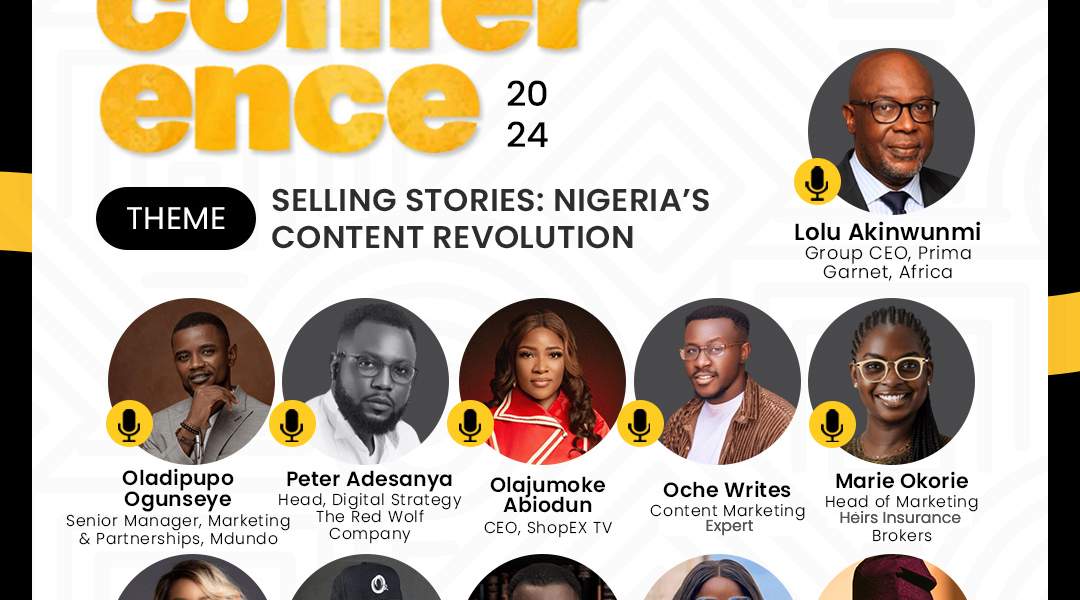Blurring the lines between brand building and performance marketing in an interview with ADMARP, some marketing professionals have emphasized the need for marketers to shift their focus away from solely performance marketing and embrace a holistic approach that incorporates both short-term and long-term strategies.
These professionals buttressed the importance of striking a balance between performance marketing and brand building for the creation of sustainable growth and long-term success in today’s fast-paced world, where consumers are bombarded with advertising messages from all directions.
According to Arafat Manliki, Regional Senior Marketing Manager, Exams, West Africa at British Council, brand and performance marketing can co-exist. For Manliki, both approaches must be leveraged creatively for any brand to succeed long-term.
“A well-rounded marketer would know that the intelligent fusion of brand and performance marketing will deliver the proper awareness, stature, and commercial gains for any brand. From where I sit, one is strategic, and the other sways more toward tactical,” he said.
In Manliki’s viewpoint, no matter the industry or commercial ambitions, it is imperative to work out who the business is as a brand before creating any performance tactics.
“I refer to this as the extended play because this works best for creating customer relationships, repeat buyers, etc. This is because a clear brand strategy will, almost always, generate recognition and ignite a distinct feeling that will stay with the audience/target customer forever. On the other hand, performance marketing is a tactical approach towards instant commercial gratification. This approach predominantly focuses on customer acquisition, reach, engagement, and performance. This is equally important depending on the business phase and objectives but with little tolerance for long-term commercial sustainability,” he explained.
On her part, Helen Akue, a brands and communications professional pointed out that companies can use performance marketing to build brand awareness and then leverage this awareness to create long-term relationships with customers.
In her contribution, Akue maintained that the key to bridging the divide between performance marketing and brand building is to strike a balance between the two.
She said: “Brand building can also complement performance marketing. Companies need to invest in both short-term and long-term strategies, ensuring that they are not sacrificing immediate sales for long-term success or vice versa. For example, a business can use performance marketing techniques to drive sales and generate immediate revenue, while also investing in brand building activities such as social media engagement, content marketing, and PR to create a loyal customer base.”
“A strong brand image can help to boost sales by increasing customer trust, enhancing brand recognition and reducing the need for expensive promotions. Meanwhile, many companies, particularly SMEs, are more likely to focus solely on brand marketing, ignoring the short-term benefits of performance marketing,” she added.
Bukayo Ewuoso, Product Marketing Manager at Eskimi shares Manliki’s perspective.
He explained that the major situation is understanding when and where to implement the right type of marketing tactic or the combination of both performance and brand marketing.
“There are also several other factors that affects this like stage of the business, resources available, immediate business goals and much more. There’s usually a buzz and wave that comes with any new thing. From “SEO will die” back then to “AI will take ours jobs” today,” he said.
In his concluding remarks, Ewuoso advised marketers to focus on understanding the business goal, then determine what strategy and tactics are needed to achieve the business goal, that is a better way to view such needs.
However, Ademola Adekunbi, an adtech professional believes marketers are beginning to overemphasize performance marketing.
Validating his premise, he stated: “if it cannot be tracked, it doesn’t work” – no, ignore those Linkedin things you learnt. No proper marketing course teaches this, because investments in Brand cannot be tracked in the short term – and no, your performance team is not the gangster driving your revenue.”
“And the simple truth is that budget has nothing to do with it, so it is applicable to both small and large businesses. The question is, will small businesses be patient enough to invest in brand (however small) for the long-term?” he posed, noting that the impact of brand marketing is not measurable in the short term and brands are getting sucked into the illusion that everything is (and has to be) trackable.
Explaining further he said: “The reality is that you cannot figure it out until you’ve carried out experiments for the good of your business. You don’t have to wait until you have a 50k USD annual budget. Do it on your 1k USD annual budget. Allocate 20% to brand campaigns for starters, observe delivery over 3-6 months and iterate with other budget splits until you find the right mix. Investments don’t come cheap – because they’re exactly that: investments. But a good bet always pays off.”
Ireti Akiwumi disagrees with the assumption that marketers are overemphasizing performance marketing.
For the digital marketing consultant, the importance of performance marketing cannot be overemphasized as it is key to getting the right growth metrics for any organization.
However, he noted that it will be a drawback for any marketer to focus only on performance metrics regardless of the growth stage of the organization,
Akiwumi also believes every business should understand the fundamentals (which is to promote the value of the business) and apply it at their level and with the right blend of resources, while cutting down on assumptions as much as possible.
“For any business that wants to stand the test of time and succeed, building the brand in tandem with the right performance indices per time is the way to go,” he said, adding that if a marketer cannot measure their activities such as content structure and delivery, campaigns, product launches etc and even show how it helps the bottom line of the company, they will soon be out of a job.
“This is why some companies look to quickly trim marketing budgets at the first sight of strain,” he said, noting that businesses must be strategic with resources (time, money, skill and efforts).
He continued: “At whatever level, businesses must be strategic. Now, a company can come out and say they are focused on improving their brand awareness and ignoring performance marketing, this should not be taken as gospel. It’s their actions based on their internal strategic thinking. Another company can say they are focused on performance marketing at a particular time than brand awareness, that’s also not to be taken as gospel. It’s balanced with an appropriate strategy that’s needed.”
On his part, Princewill Ejirika, Head, Digital Marketing & Growth, Omnibiz Africa doesn’t think marketers are overemphasizing performance marketing. Instead, he agreed there has to be a balance between both.
“This is nuanced and can be varied depending on the industries / markets. So performance marketing gets ‘immediate results’ & brands can’t afford to not drive immediate results e.g sales, revenue, customer acquisition etc. and many new companies / tech companies need these immediate results to survive & don’t have the budget to execute big budget brand awareness campaigns in a lot of cases; or a start up can’t be investing in building a brand when it needs to acquire users immediately to gauge its product market fit or develop its business model plus nobody knows if the startup will live long enough to reap the benefits of the brand it’s building. and some products might be niche so performance marketing is the best way to reach customers,” he said.
“In comparison to bigger companies e.g FMCG, they usually have larger budgets, sales channels & distribution chains that help them drive revenue for their products. so they can invest a lot heavily into brand awareness / brand building unlike start ups & tech companies. Experts say it’s somewhere between splitting your marketing budget btw 70% to 80% for brand awareness / building & the remaining 20% to 30% for performance marketing.




